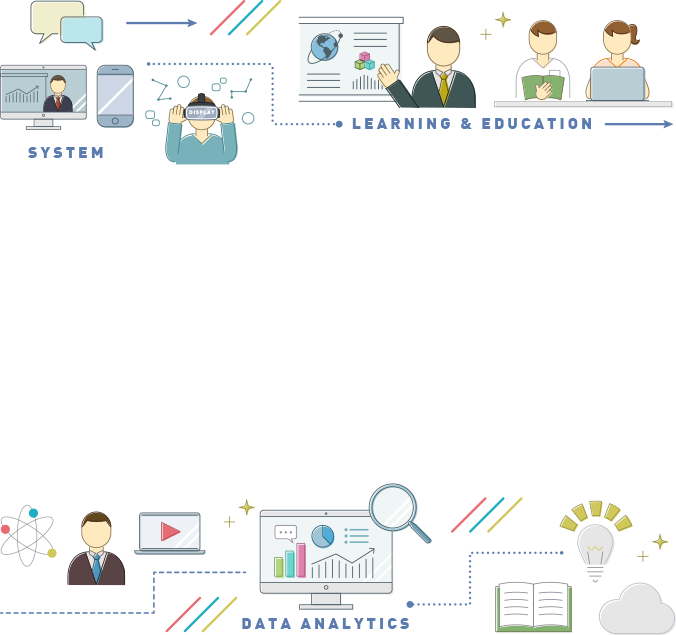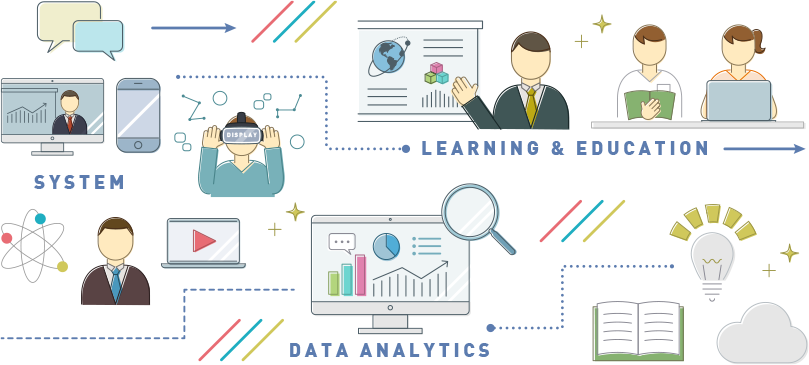Hello everyone,
From March 18th to March 22nd, 2024, I attended the 14th International Learning Analytics and Knowledge Conference (LAK24) at the Kyoto International Conference Center. LAK is a major event in the field of learning analytics, focusing on cutting-edge research, data utilization in education, and system development. This year, there were many fascinating sessions centered on the application of generative AI, the analysis of learning data using machine learning, and Multimodal Learning Analytics (MMLA).
On the first day of the conference, I participated in “The 6th Workshop on Predicting Performance Based on the Analysis of Reading and Learning Behavior.” I was particularly interested in presentations such as “The Feasibility of Utilizing ChatGPT in Learning Analytics for the Identification of At-Risk Students” and “Enhancing Personalized Learning with MBTI Forecasts and ChatGPT’s Tailored Study Advice.” These presentations suggested that by combining generative AI with learning analytics, it is possible not only to identify students who are struggling but also to provide customized learning support based on learners’ characteristics, such as personality traits identified through tools like the MBTI (Myers-Briggs Type Indicator), which categorizes people into 16 different personality types.
On March 19th, I participated in the “Learning Analytics from Virtual Reality” workshop. I learned a lot by listening to various presentations on how learning analytics (LA) can be applied to virtual reality (VR) learning environments. I was particularly inspired by the keynote presentation by Professor Marcus Specht titled “Perspectives on LA in and from VR: from tracking guitar chords to discussing airplane design.” In his talk, he highlighted examples such as a VR guitar learning tool that supports deliberate practice for individual learning, and VR learning environments used in collaborative learning contexts, like discussing airplane design. These examples sparked numerous ideas in my mind about how LA can contribute to designing more effective learning environments through immersive VR experiences, and I am eager to apply these insights to my own research.
During the main conference from March 20th to 22nd, I focused on research presentations related to LA dashboards, self-regulated learning, and Multimodal Learning Analytics (MMLA). Among the presentations, I encountered several studies using Epistemic Network Analysis (ENA) and Ordered Network Analysis (ONA), which expanded my understanding of analytical methods that I had not previously considered.
One particularly notable study was “TAM4SRL: A Consolidated Temporal Analytic Method for Analysis of Self-Regulated Learning” by Nath, Gasevic, Fan, and Rajendran (2024). This research proposed a new method for investigating self-regulated learning activities by integrating multiple techniques, including ONA, pattern mining, and data visualization. This approach provided a comprehensive framework for analyzing the temporal aspects of self-regulated learning, offering new insights into how these activities can be understood and supported. The proposed method emphasized a more comprehensive approach to supporting self-regulated learning (SRL) through learning analytics (LA) by highlighting the temporal characteristics of behavior. This was achieved through multidimensional investigation, including intuitive visualization of how learning activities change over time, examination of the sequence of SRL activities using Ordered Network Analysis (ONA), and identification of repeated activity sequences within the learning process through pattern mining.
Additionally, while previous Multimodal Learning Analytics (MMLA) research I had read mainly focused on analysis, the presentations at LAK24 made me realize that MMLA is evolving beyond just the collection and analysis of physiological data. It is now being applied to design and create more suitable learning environments for learners, demonstrating a broader scope of application that can enhance educational experiences in more dynamic and context-sensitive ways.
LAK24 was an incredibly valuable experience for me. It provided an opportunity to explore how the evolution of generative AI is expanding the possibilities of learning analytics and how emerging technologies like VR can transform learning experiences. I believe these insights will significantly influence the direction of my future research and its application in educational practices. On the other hand, I realized that my current knowledge and skills regarding the latest learning analytics methods and generative AI need further updating. This recognition has motivated me to address these gaps in my research.
Moreover, the interactions with other researchers offered diverse perspectives and ideas, bringing new dimensions to my previous research. Based on my experiences at LAK24, I am determined to participate more actively in international conferences in the future, aiming to enhance the quality of my research and foster new collaborations.
By: Geng Xuewang







